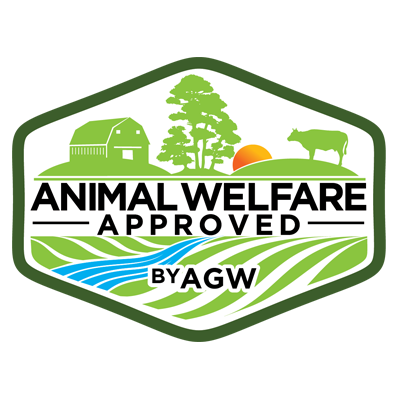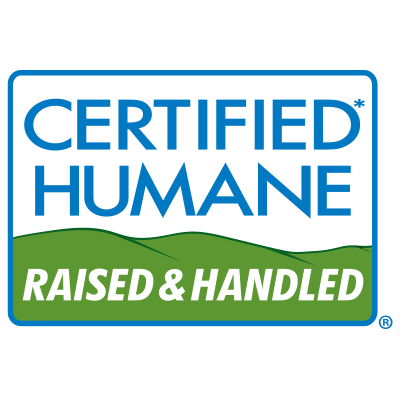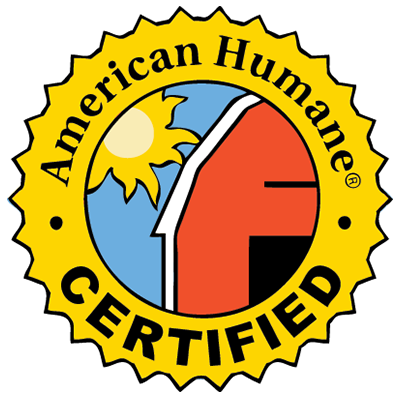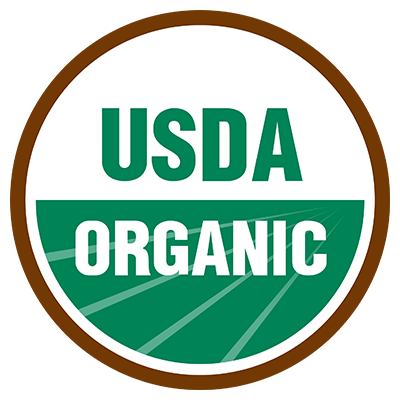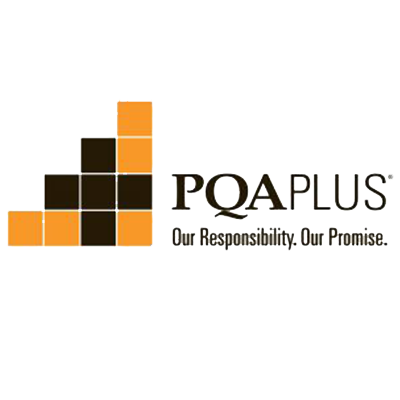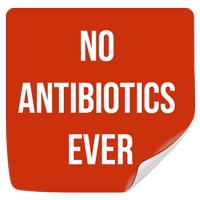Don’t be fooled by food labels that sound like they mean better for pigs. Use our guide below to learn how these labels actually impact pig welfare—or how they don’t. Look for the ASPCA recommended labels Animal Welfare Approved, Certified Humane and Global Animal Partnership (Step 2 or higher), and then sign up to join the Shop With Your Heart movement for the latest info on finding these products and making welfare-conscious choices when you shop.
| Animal welfare certifications | Other independent certifications | Industry certification | Other claims | ||||||
|---|---|---|---|---|---|---|---|---|---|
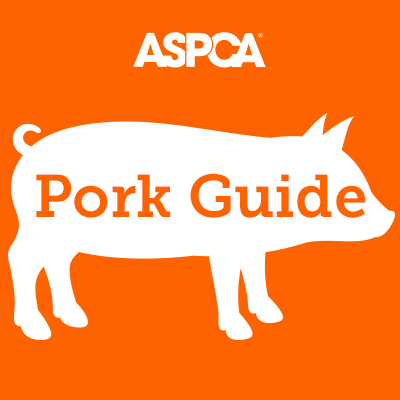 |
|
|
|
|
|
|
|
|
|
Meaningful On-Farm Welfare Standards | Yes | Yes | Yes | No | No | No | No | No | No |
Farrowing and Gestation Crates Prohibited | Yes | Yes | Yes | No | No | No | No | No | No |
Adequate Indoor Space Minimums | Gestating Sows: Farrowing Sows: Grower Pigs: | Gestating Sows: Farrowing Sows: Grower Pigs: | Gestating Sows: Farrowing Sows: Grower Pigs: | Gestating Sows: Farrowing Sows: Grower Pigs: | No | No | No | No | No |
Environmental Enrichments Required | Must have continuous access to forage | Must have materials for rooting and manipulating (straw/ sawdust/ | Step 1: No Step 2-4: Indoors must provide environmental enrichments (straw/hay/ Step 5-5+: Yes, outdoor enrichments on pasture | No | No | No | No | No | No |
Outdoor Access Required | Yes, “continuous outdoor pasture access” | No | Step 1-2: No Step 3: Yes, “continuous outdoor access during daylight hours” Step 4: Yes, “continuous access to pasture” Step 5-5+: Yes, “continuously on pasture” | No | Yes, but undefined | No | Yes, but undefined | No | No |
Routine Tail Docking Prohibited | Yes | Yes | Yes | Permitted < 7 days | No | No | No | No | No |
Teeth Clipping Prohibited | Yes | Permitted only by request for welfare related reasons < 4hrs or < 3 days for sick piglets | Yes | Permitted where necessary to prevent injury < 24hrs | No | No | No | No | No |
Maximum Transport Duration | 8 hrs | 8 hrs | Step 1-5: 16 hrs Step 5+: Transport not permitted | None | None | None | None | None | None |
Routine Antibiotic Use Prohibited | Yes | Yes | Yes | No, allows nontherapeutic use of ionophores | Yes | No | No | Yes | No |
On-Farm Audits of Every Facility | Yes | Generally yes, but not every facility is audited in producer groups | Yes | Yes | Yes | No, audits do not cover the entire farm | No | No | No |
Timing of Audits | Once every year | Once every year | Once every 15 months (in order to see a farm in each season) | Once every year | Once every year | Once every three years | Not applicable | Not applicable | Not applicable |
100% Compliance with Standards | Yes | Yes | Yes | No* | Yes | No (standards are guidelines, not requirements) | No | No | No |
† Although the USDA Organic program released new, stronger animal welfare standards in January 2017, it delayed their implementation for months. Finally, in December 2017, the USDA announced its intention to withdraw these new standards completely. We are monitoring developments and will keep you updated; be sure to join the ASPCA Advocacy Brigade for alerts if you haven’t already.
* American Humane Certified standards only require that producers meet 85% of the provided standards. Accordingly, it is possible that a producer might not meet certain requirements (including antibiotic use) and still receive the American Humane Certified certification.
